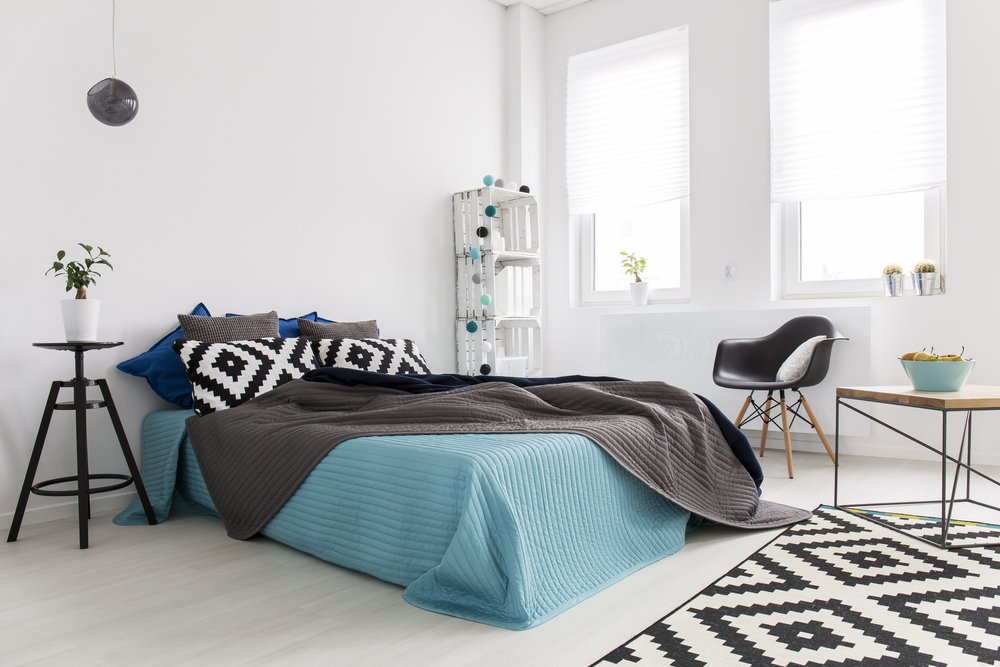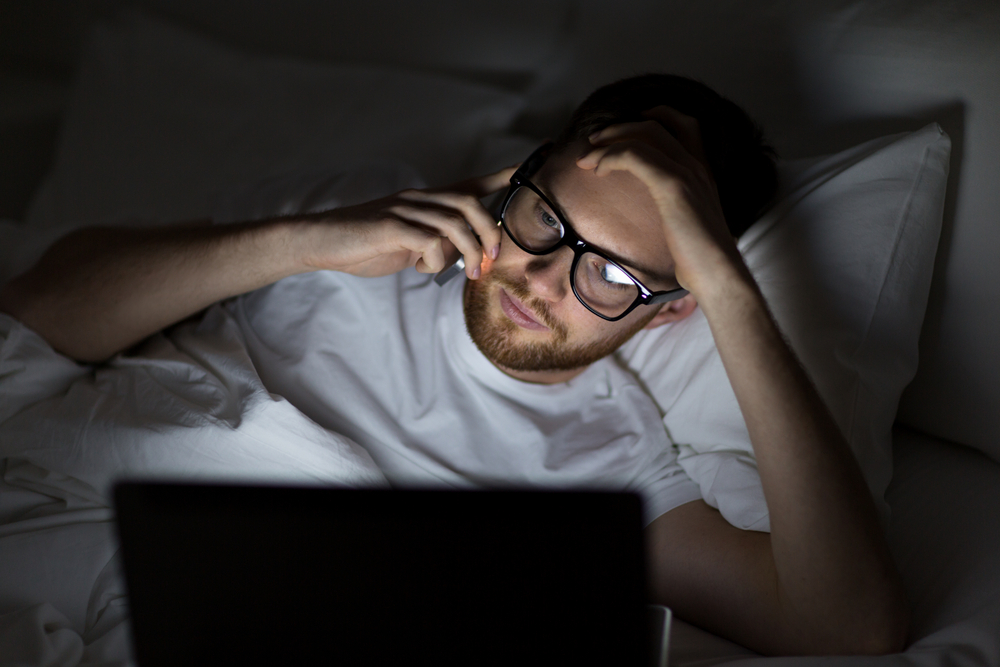
Your Essential Guide to a Better Night’s Sleep
Many people believe that sleep is the time for their body to switch off. However, studies have shown that our bodies and brain can actually be much more active when you’re asleep than during the day. Sleep is the time for our bodies to recover from the stresses and strains of the day and, during the night, our brains work tirelessly to form the pathways we need to learn and create memories during each day. So, you might be able to see how a lack of sleep can cause problems with concentration and mood as well as making us more susceptible to obesity, diabetes and infection.
Scientists claim that we need a minimum of six hours sleep per night to recharge our batteries and learn new information the next day but over 70% of British people admit to sleeping less than seven hours a night and 91% of people surveyed added that their sleeping environment has a massive impact on their sleep. Anything from the wrong mattress, a snoring partner and too much light keeps our nation awake during the night.
At Blinds Direct Online, we want to know more about your sleeping patterns and what prevents you from getting a peaceful night’s rest so we’re conducting a survey to find out. We’d appreciate it if you could take a few minutes to fill out our survey and let us know how you sleep. In the meantime, to help you get a more restful night’s sleep, we have compiled a guide to sleep to help you create a sleep friendly environment and wake up feeling alert and well-rested.
1.Create a Restful Environment
If your bedroom is in chaos, how can you expect to feel calm and rested? The British Heart Foundation recommends that you keep your bedroom clutter free to allow you to escape from the stresses of the day. Remember the phrase ‘tidy room, tidy mind’? This couldn’t be more true when it comes to sleeping. A lack of clutter and distractions will provide you with a place to escape to at the end of a long day.
Make sure your bed is comfortable and provides adequate support and space. This will help you to sleep more soundly and ensure that you’re not waking up or moving around to make yourself more comfortable during the night. Keeping your bedroom at the correct temperature (between 16 and 18°C) will help you to be more comfortable and help to keep your body temperature regulated.

2. Control Exposure to Light
To get the best night’s sleep, your bedroom should be as dark as possible. Light has a profound impact on our sleeping patterns. Maximum light exposure first thing in the morning helps us to feel alert and ready for the day ahead but it also works at night too. Light exposure, natural or artificial, can stimulate alertness and make it much harder to fall asleep when the time comes. A bedroom that’s too bright can lead to frequent and prolonged awakenings throughout the night. Darkness tells our brains that it’s time to rest so too much exposure to light at the wrong time can stop the production of melatonin, the chemical we need for sleep.
The rising sun is one of the body’s most powerful tie cues and can wake your brain up long before your alarm. Buying effective window treatments can help you to solve this problem. At Blinds Direct Online, we supply a wide range of made-to-measure roller blinds, blackout roller blinds and venetian blinds, all of which can help you to control the amount of light coming into your bedroom at any time of the day or night.

3. Limit Technology
The Mental Health Foundation recommends that you rid your bedroom of all distractions. It’s better to watch TV, play computer games or eat in another room to allow you to fully relax. Computers, phones, tablets and TVs all have a backlit blue light display which can suppress the production of melatonin and cause sleep disruption. They recommend that you stop using these devices around two hours before you fall asleep to reduce their impact.
Not only can technology prevent the production of melatonin, technology can also be distracting. Have you ever stayed up an extra couple of hours to watch the next episode in that series you’ve been watching? Ever received an email just before going to sleep that makes you worry and prevents you from getting a restful night’s sleep? Technology keeps your mind engaged and can even trick your brain into thinking it needs to stay awake. After a busy day that’s more than likely full of technology, you need to give your brain time to unwind.

4. Colour Scheme
Colours can have a huge impact on our psychology and mood so think very carefully about how you decorate your bedroom. The bedroom is a space that should make you feel calm, relaxed and ready to sleep so choose a colour scheme that will help you to achieve this. Depending on your personality and preference, the colours you choose may differ but, in general, blues, greens, greys and pastel colours all help to reduce your heart beat, lower blood pressure and slow respiration which all promote better sleep. Try to avoid bright colours such as red because they are more stimulating and less conducive for a good night’s sleep.
5. Regular Exercise
Did you know that as little as 10 minutes of exercise such as walking or cycling per day can dramatically improve the quality of your night’s sleep? Exercise reduces stress, tires you out and, if you can exercise outdoors and allow your body to absorb extra sunlight, even better!
The Sleep Council recommends taking part in regular sports and exercise to help you enjoy longer and better quality sleep. Exercise lifts your mood and reduces stress and has a huge impact on your circadian rhythms which can also promote good sleep, making you feel alert during the day and tired at night.
Exercise has even proven to improve sleep for people with sleep disorders such as insomnia and sleep apnea. A poll from the National Sleep Foundation showed that those who exercise on a regular basis were more likely to report sleeping well on most nights than those who did no physical exercise.
Be wary of over exercising and tiring your body out too much because it can have the opposite effect and prevent you from getting a good night’s sleep. An over tired and sore body can keep you awake at night and prevent you from sleeping properly.

6. Regular Sleeping Hours
The NHS recommends regular sleeping hours for better sleep every night. Going to bed and getting up at the same time every day, even weekends, can make it much easier to get up in the morning and will help to programme your body’s sleeping patterns. Choose a time in the evening when you’re likely to feel tired and which will give you enough time to sleep adequately before you have to get up in the morning.
Many of us scrape by on a minimum amount of sleep either because we’re busy in the evenings and can’t get to bed early enough or sleep poorly throughout the night and then make up for the accumulated sleep debt at the weekends by sleeping in until lunchtime. However, this can be detrimental to sleep patterns and sleeping in on a Sunday can make it much harder to get to sleep in the evening and make you feel even more tired on a Monday morning.
7. De-Stress
According to research from The Sleep School, 70% of a person’s thoughts are negative. Our recent survey also revealed that over 50% of respondents were prevented from getting a good night’s sleep by stress from the day ahead or the previous day. We worry about past events or current problems and we cannot switch off at night. By taking part in activities that you enjoy throughout the day, you can increase your levels of serotonin, the hormone that makes us feel happy, and reduce stress levels as well as help you to drift off at night.
If you’d like to take part in our sleep survey, please fill it in below. The survey only takes a minute to fill out and will help us on our mission to help our nation get a better night’s sleep. Remember, if there’s too much light in your bedroom, our huge range of blinds in a range of styles and colours could give you more control and help you get a better night’s rest. Just click here to find the perfect blind for your bedroom. We also have an expert team of advisors who can provide guidance to ensure that the blind you order is right for you.


